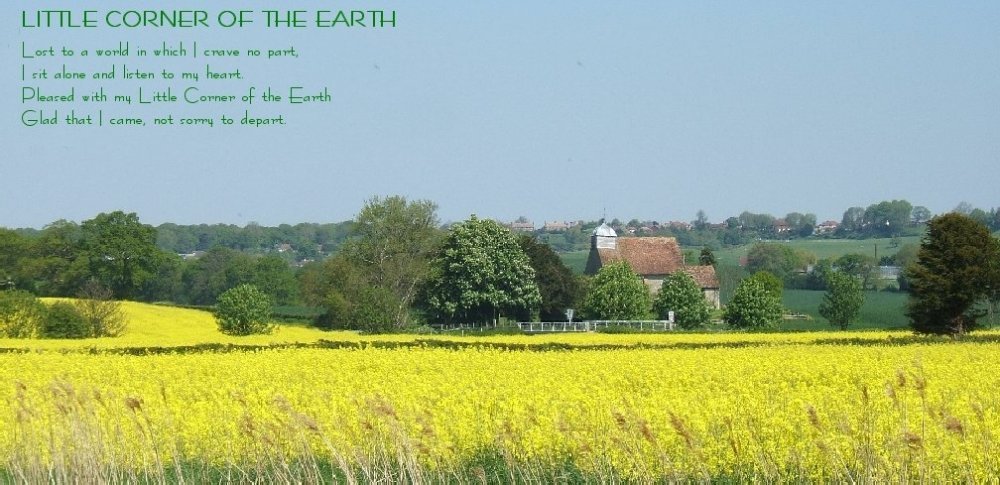Adlestrop Station before its destruction in the '60s Beeching cuts
Yes. I remember Adlestrop—
The name, because one afternoon
Of heat the express-train drew up there
Unwontedly. It was late June.
The steam hissed. Someone cleared his throat.
No one left and no one came
On the bare platform. What I saw
Was Adlestrop—only the name
And willows, willow-herb, and grass,
And meadowsweet, and haycocks dry,
No whit less still and lonely fair
Than the high cloudlets in the sky.
And for that minute a blackbird sang
Close by, and round him, mistier,
Farther and farther, all the birds
Of Oxfordshire and Gloucestershire.
Close by, and round him, mistier,
Farther and farther
This poem, by Edward Thomas, holds for me that moment during a busy, noisy journey when everything
stops for a moment and one is a traveller in an unfamiliar place. Indeed, it has an essential sense of time and place which seems almost unequalled.
Farther and farther
This poem, by Edward Thomas, holds for me that moment during a busy, noisy journey when everything
stops for a moment and one is a traveller in an unfamiliar place. Indeed, it has an essential sense of time and place which seems almost unequalled.


